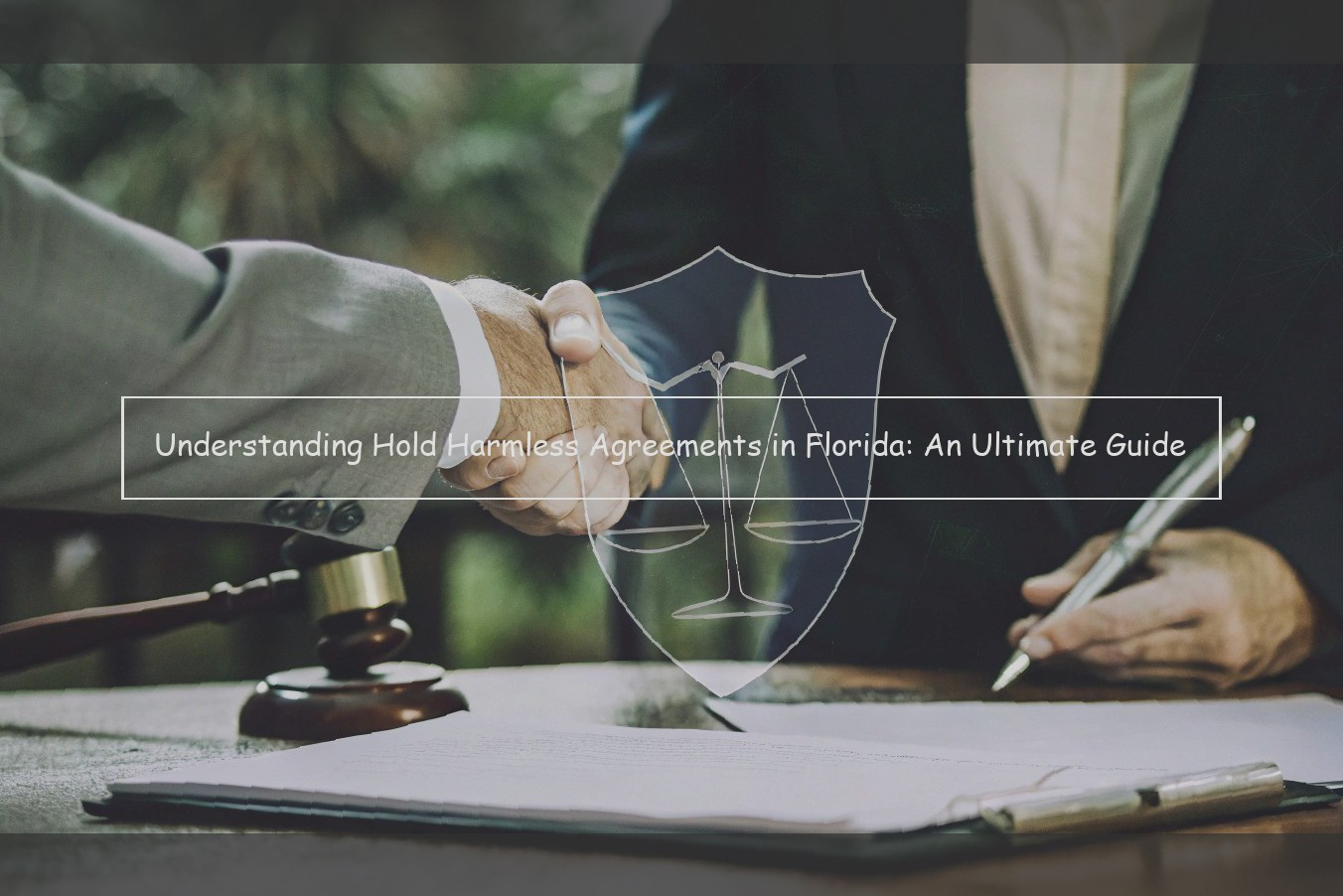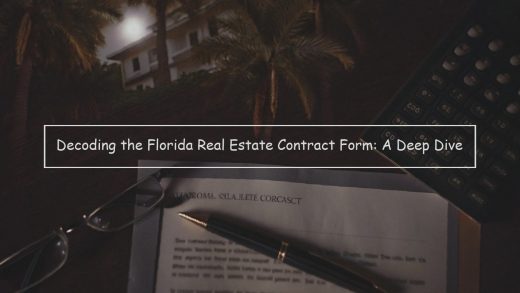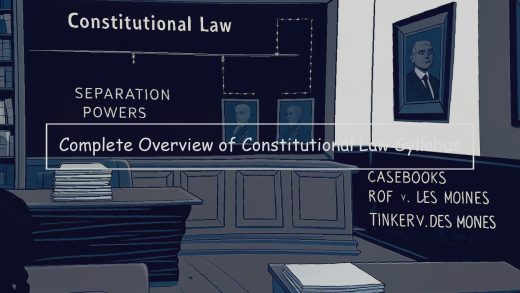
What is a Hold Harmless Agreement?
A hold harmless agreement is essentially a contractual provision in which one party takes on the legal liability for certain consequences, typically from damages or injuries, that may result from a specific action or activity. The intent behind such an agreement is to remove financial responsibility for those damages or injuries from one party and instead place that burden on another. This type of agreement can be particularly useful to limit liability by stating that one party will not hold the other responsible for potential damages or losses.
The agreement may also be used in a variety of different contexts such as to allocate financial responsibility among parties participating in a joint venture. This means that even if one of the parties is legally liable for a particular issue , that party does not agree to hold the other party liable for that issue.
Under the Florida Statutes, section 725.06 provides certain guidelines about hold harmless agreements, indicating that these agreements shall not be construed to indemnify or hold harmless that party:
In the event that the hold harmless agreement was signed for and in consideration of the right of way easement, it is likely that this statute would not apply. It is always best to consult with your Florida business lawyer for opportunities to protect your business interest.
Legal Requirements in Florida
When it comes to hold harmless agreements in Florida, it is best to have a written agreement setting forth the basics in writing. In Florida, there are no specific legal requirements for a valid hold harmless agreement. Like in many other states, oral hold harmless agreements can still be created and are legally binding. However, such unadorned hold harmless agreements may be hard to enforce, especially since proving the terms and scope of such hold harmless agreements may be difficult if not impossible.
Since a hold harmless agreement is ordinarily a type of indemnity agreement or indemnity provision, the Florida Statutes prescribe certain limitations in circumstances where indemnity agreements are used as liability releases or waivers of liability.
In Florida, a hold harmless agreement for future ordinary negligence (and not gross negligence or willful misconduct) may be unenforceable under Florida Statutes §§ 670.3102 and 680.801(2). Specifically these statutes provide:
670.3102. Limitation of liability agreements.—
(1)
(a) A provision in or relating to a commercial transaction or a commercial real estate transaction in which one party indemnifies, defends, or holds harmless another party from loss or liability imposed upon that other party’s indemnified party by reason of the property, products, services, or collateral subject to the commercial transaction or any aspect thereof, including location thereof, constitutes a waiver by the other party of all claims against the indemnified party or an assumption of liability of the indemnified party except for:
- Claims arising out of the gross negligence or willful misconduct of the indemnified party;
- Claims arising out of the breach of a fiduciary duty by the indemnified party or a claim for any consequential damages; or
- Claims arising out of violations of the Deceptive and Unfair Trade Practices Act, part II of chapter 501, claims arising out of violations of article I of the State Constitution, and claims for punitive damages.
(b) This section does not affect cause of action or remedies based upon contract principles.
- (2) This section does not apply to the construction, repair, or equipping of any condominium, cooperative, time share, or residential unit, building, or appurtenance to a building, including, but not limited to, a driveway, swimming pool, or fence.
- 801. Waivers and releases of liability for loss or damage to goods—"Limitation on the Effect of Waivers and Releases of Liability on Liability Insurance," Florida Statutes, Chapter 680
- (1) Except as otherwise provided in subsection (2), the procurement or possession of a waiver or release of liability or other limitation of liability or damage under the laws of this state, any state, or the United States does not satisfy any description of or limit on the liability insurance or surety bond of a bailor, bailee, and/or insurer.
- (2) As to products liability insurance, the provisions of s. 670.3102(2) are applicable.
Common Uses for Hold Harmless Agreements
Hold harmless agreements are not unique to the construction industry, nor are they exclusively offered by general contractors. Subcontractors, cleaners, landscapers, janitorial services, supervision companies and other business entities may also provide these agreements to protect themselves from liability for damages or injuries at a property. Homeowners, commercial property owners, and owners associations may enter into a hold harmless agreement with contractors or service providers as a show of goodwill, or require one as a condition of entry to perform work. These agreements are typically encountered in the following instances:
Construction Contracts
Construction contracts commonly have language for subcontractors and their performance. This common provision is often referred to as "hold harmless" or "indemnity" language. Indemnity means that if one party is found responsible for an injury or damages, that party shall not be responsible for the costs associated with a settlement or judgment. When in fact, all parties are negligent, the courts would generally apply comparative fault; however, having indemnity provisions evinces the intent of the parties. Often general contractors will include language to protect themselves against claims from their clients against them for a subcontractor’s failure to perform its work in accordance with the contract terms.
Lease Agreements
Most lease agreements have language that provides protection to the landlord from liability for the acts or omission of the tenant. This may be evidenced in a provision that states the tenant shall indemnify, defend, and hold harmless the landlord from any and all claims, losses, damages, liabilities, expenses or causes of action arising from the tenant’s occupancy of the premises.
Commodore Winslow Apartments v. Dougherty
88 So. 3d 248 (Fla. 3d DCA 2012)
In Commodore Winslow Apartments v. Dougherty, the court found that the lease agreement between the landlord and tenant provided "The tenant agrees to indemnify and hold harmless the landlord from any and all liabilities and costs, including reasonable attorney’s fees, in connection with the tenants use and occupancy of the leased premises". Id. at 249. The court reversed the trial court’s order which denied landlord’s motion for summary judgment finding that the agree language is clear and unambiguous because "[i]t expresses certain obligations of the parties to the lease agreement regarding the tenant’s liability for torts that arise from the tenant’s possession and use of the premises". Id.
Facility Agreements
The agreements for the leasing of spaces on a property, such as canopies, tents or other structures or equipment, may involve facility agreements with language requiring the party leasing the facility to hold the general contractor or property owner harmless if anything occurs in connection with the facility. Businesses that rent out structures, such as tents, on privately owned property often require the lease agreements contain an indemnification provision.
Drafting a Hold Harmless Agreement
In Florida, a hold harmless agreement is a contract between two parties that one will not hold the other responsible for any losses that arise under that contract. A hold harmless agreement might take the form of a mutual indemnity (both parties agree not to hold the other harmless for certain things). Hold harmless agreements are often used in construction contracts to protect everyone in the chain: the owners, contractors, subcontractors and suppliers. The contractor might agree to hold the property owner harmless for any damage done by the contractor’s workers to adjoining property. Other common uses include business agreements, area acquisition agreements and general business sale contracts.
A typical hold harmless agreement will contain the names of the parties, the date the agreement will be in force, language about what the agreement covers (e.g., claims, liability, injuries, losses, etc.), if the agreement extends to third parties, and a provision for attorneys’ fees should one of the parties need to take action to enforce the agreement.
A hold harmless agreement must be in writing for court enforcement. Verbal hold harmless agreements are generally unenforceable in court, because they are viewed as oral contracts.
A draft agreement should also include any time limits the activity will be covered, as well as a specific description of what type of damage is covered. For example, is it only physical property damage, or does it also cover economic loss? If only physical damage is covered, and the cost of a delay in construction is suffered by the owner, then no indemnity would cover that cost. Because they are contracts that cut off all recovery, whether direct, derivative, or consequential, they are typically narrowly construed by Florida courts.
Parties should carefully examine the particular drafting of a hold harmless agreement to avoid accepting greater liabilities than they may be contemplating or giving up the right to sue entirely. Only a careful lawyer would recommend that a client sign away the right to sue for reckless or intentional conduct.
Florida case law has interpreted some hold harmless agreements as limited to acts of negligence only, and others as covering intentional acts, while others it held are not restricted to negligence. Numerous recent Florida cases have specifically addressed the issue of the scope of an indemnity provision and the language that is necessary to limit the scope of the indemnity provision so that it does not exclude coverage for the indemnitees’ own acts or omissions. See, e.g., Florida Power Corp. v. Westinghouse Elec. Corp., 826 So.2d 256, 260-62 (Fla. 2002); Gen. Dynamics Corp. v. U.S., 108 F.3d 1000, 1014-15 (Fed. Cir. 1997); Finkel v. Setnor & Assocs. Ins. Agency, Inc., 653 So.2d 1121, 1124-25 (Fla. 4th DCA 1995); Ray L. Lindstrom Co. v. S.E. Frey Co., Inc., 31 So.2d 961, 963-64 (Fla. 3d DCA 1947); and The Lynn Group, Inc. v. Frias, 556 So.2d 427 (Fla. 3d DCA 1989).
Where to Find Hold Harmless Agreement Templates
Hold harmless agreements and similar contracts are common in doing business in Florida. Finding a proper contract template is key to ensure that the right obligations are being outlined from the start. For example, many general contractors routinely require all subcontractors to execute a release of lien and/or a general hold harmless agreement. These types of release documents can often be found online in the form of a legal template. The "form document" itself is often free, but other fees may apply based on how the document is customized as well as any fees for printing and mailing.
Since forms can be freely downloaded, there are often times where parties will find one that might be outdated or not entirely applicable to their needs . Because of this, it is always recommended to speak to a lawyer rather than online templates or documents which may be outdated or not specifically apply to the particular situation.
Reputable online resources such as the Florida Department of State are important resources to utilize if the party decides to use an online template. Websites like Rocket Lawyer, Law Depot, and Free Legal Documents are some other projects that have gained national attention because of their downloadability without review by an attorney.
Professional legal services such as LegalZoom also help to reduce the number of times that a lawyer with specific expertise must be called on for various delegations. They will secure your information via their lawyer to develop an agreement and can charge a relatively low rate to customize an agreement according to your specifications.
Legal Advice and Considerations
When dealing with any contractual agreement, first obtain as much legal advice as possible. A hold harmless agreement may not have any legal up-front costs to execute, but it can have ramifications that outlive other more standard forms of doing business. For example, a property owner may hire someone for repairs and maintenance. The property owner and the sub-contractor may agree by simple e-mail that there is to be no liability for either party in the event of a bad repair or resulting accident. Fast forward one year. The repair is seen to not have been done. The property owner is found to have been at fault, causing an injury to someone. The suit is filed. See where the problems come in?
For starters, the agreement probably could not be enforced against an injured party. Florida Recognizes a public policy exception against enforcing such agreements as to "negate liability for damages that arise or may arise from injuries to persons or property caused by or resulting from negligent or intentional acts or wrongful conduct of the promissor or of persons engaging in or performing work on behalf of the promissor." Dept. Of Transp. v. Ceres, 633 So.2d 1060, 1066 (Fla. 1994) (defining the term "hold harmless"). Further, there are now increasingly prohibitive laws against such agreements and other tools in a Plaintiff’s attorney’s arsenal of weapons, such as: As can be seen, foregoing an adult discussion of negotiating when such an agreement should or should not apply is a false economy at best. Worst, the document that is ultimately signed is worth little to both parties involved and could lead to liability that both are trying to avoid.
Conclusion and Final Tips
In this article, we have covered the essential aspects of hold harmless agreements in Florida, including their purpose, benefits, and limitations. Here are some key takeaways:
- Definition: A hold harmless agreement is a legally binding contract in which one party agrees to assume the liability of another.
- Purpose: The most common use of hold harmless agreements is in risk management for potentially harmful actions or as guarantees that one party will compensate another for losses related to specific actions.
- Benefits: Hold harmless agreements can provide all parties with peace of mind by clearly defining objectives, limiting exposure to liability, and establishing the consequences of failing to meet those objectives .
- Limitations: A hold harmless agreement may not be enforceable if it violates public policy or if it is written in excess of the compensation limits outlined in Florida’s workers’ compensation statute.
- Legal counsel: It is advisable to consult a legal professional before implementing hold harmless agreements in Florida because they are not universally applicable or suitable for every situation.
If you are considering using a hold harmless agreement, we advise consulting with a lawyer who is experienced with Florida law or other professionals who have experience employing a hold harmless agreement structure.



